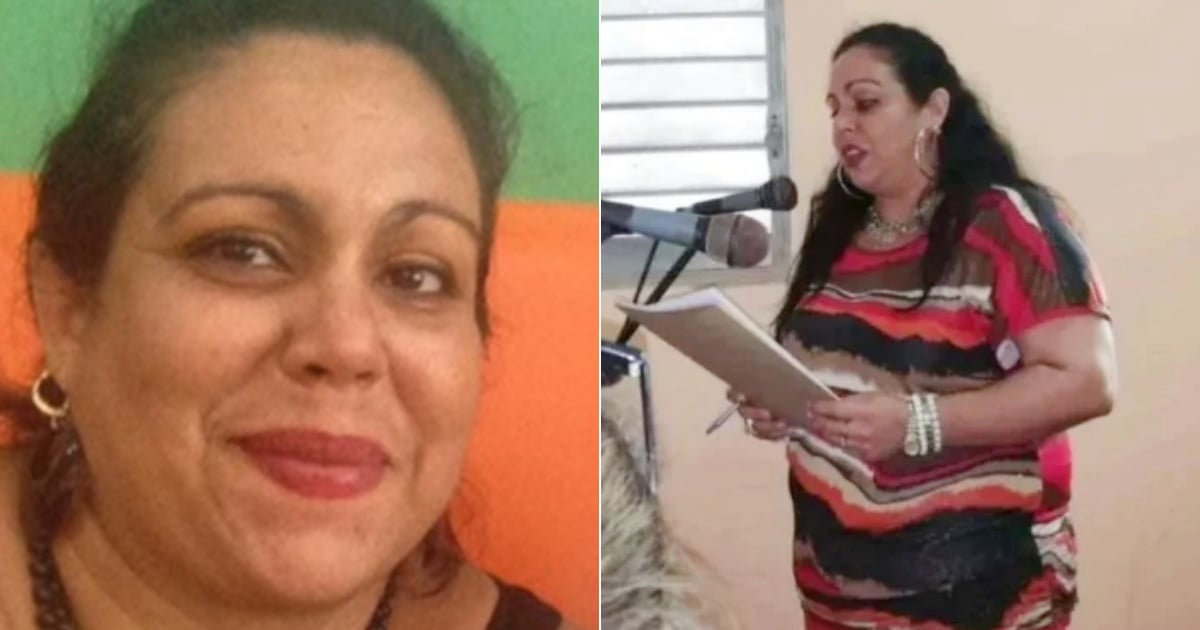Former Cuban judge Melody González Pedraza, who had her political asylum request denied by a Florida judge at the end of May, has been transferred to a different prison and state. Although she has just a few days left to appeal her deportation, she has not yet decided whether to do so, as she revealed in recent statements to Diario de Cuba (DDC).
Should González Pedraza choose to appeal, the deportation order will be suspended until a higher court in the United States either grants her asylum or confirms the denial, leading to her expulsion. The independent outlet reported that if she is ultimately sent back to Cuba, several outcomes could await the former magistrate.
Potential Scenarios Upon Returning to Cuba
González arrived in the United States on May 30, 2024, through the humanitarian parole program in Tampa, where she was denied entry and subsequently sought political asylum. She entered the U.S. shortly after sentencing four young individuals without sufficient evidence, as she admitted to DDC.
What could happen if she returns to Cuba? DDC warns that her situation could unfold in various ways if she is sent back to the island. Initially, the Cuban regime might refuse to accept her, which could result in her being sent to a third country or remaining in the U.S. in a legal limbo.
If the Cuban government agrees to her return, DDC anticipates adverse consequences for the former judge. They believe she could face arrest and charges for offenses such as "enemy propaganda," "disrespect," "incitement to hatred," "spreading false news," and other acts "against state security," referring to her statements about a manipulated trial where she issued sentences without evidence against four young Cubans.
Additionally, due to her former role as a judicial official, she might be accused of ethical violations, disclosing official secrets, or engaging in acts deemed harmful to state security.
Social Isolation and Possible Repercussions
Even if not detained, González could face police surveillance, home harassment, preventive summons, interrogations, and media smear campaigns. According to DDC, this pressure could also extend to her immediate family. "One certainty for the jurist is that she will not be able to return to the Cuban judicial system and might even struggle to find any other type of employment," Diario de Cuba concludes.
Alternative Paths Outside Cuba
Another possible route could be her eventual departure from Cuba to countries such as Spain, Germany, Mexico, Colombia, Brazil, or Canada, citing political persecution. If she resumes her denunciations, she could become a witness before international bodies like the Inter-American Commission on Human Rights (IACHR), the United Nations, or symbolic tribunals on Cuba. This role would increase her international visibility but also the risks to her and her family on the island.
Attorney Santiago Alpízar: "She is Not a Victim"
Not everyone agrees with the perception that Melody González is or could become a victim of the Cuban system. Attorney Santiago Alpízar, representing the organization Cuba Demanda, expressed a critical stance in an interview with journalist Mario J. Pentón. Alpízar lamented that Diario de Cuba "has followed the case portraying her more as a victim when in fact she is a perpetrator."
The lawyer clarified that the organization he represents was actively involved in the legal proceedings in the United States and submitted a report arguing against granting González asylum. "We believed that Melody was not a victim of the communist system but an active agent of the PCC and a repressor who, from her position as a judge, committed the crime of prevarication in favor of State Security and the government," he stated. "She is not a victim. Nothing will happen to her upon her return to Cuba; she might even receive a medal," Alpízar concluded with irony.
He also highlighted that the former judge utilized all the procedural guarantees available in the U.S. legal system, opportunities which many Cubans being deported from the U.S. have not had. According to information from Mario J. Pentón, Melody González's husband has already been deported to Cuba. The Cuban regime, meanwhile, has remained completely silent about the case, not issuing any official statements regarding the jurist's allegations or her legal situation in the United States.
If González Pedraza decides to appeal, she could extend her legal stay in the U.S. by six months to a year while her case is resolved. Otherwise, her fate will depend on whether Cuba agrees to take her back and the conditions she faces upon her return.
Key Questions Regarding Melody González's Situation
What are the potential outcomes if Melody González is deported to Cuba?
If deported to Cuba, Melody González could face various scenarios including rejection by the Cuban regime, potential legal action for her past actions, or social isolation and harassment.
Why was Melody González's asylum request denied in the United States?
Her asylum request was denied partly due to her past actions as a judge in Cuba, where she was involved in sentencing individuals without sufficient evidence, prompting concerns about her role in the Cuban judicial system.
What legal options does Melody González have in the United States?
Melody González can appeal the deportation order, which would temporarily suspend her deportation while a higher court reviews her case.
